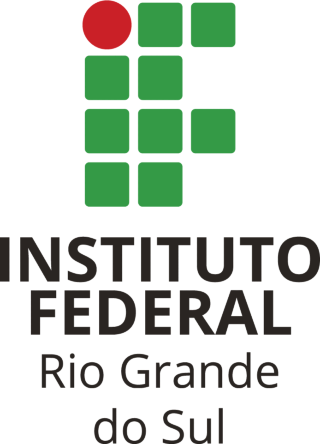| dc.contributor.advisor |
Ramos, Josiane Carolina Soares |
pt_BR |
| dc.contributor.author |
Fontoura, Julian Silveira Diogo de Ávila |
|
| dc.date.accessioned |
2023-12-26T19:16:38Z |
|
| dc.date.available |
2023-12-26T19:16:38Z |
|
| dc.date.issued |
2015 |
|
| dc.identifier.uri |
https://dspace.ifrs.edu.br/xmlui/handle/123456789/967 |
|
| dc.description.abstract |
Atualmente a escola deixa de ser apenas o lócus privilegiado para o desenvolvimento de um conjunto de atividades que, de forma metódica, continuada e sistemática, possibilita a socialização dos saberes acumulados historicamente pela humanidade, mas torna-se também um espaço que privilegia os processos que tenham como objetivo formar cidadãos críticos e atuantes na sociedade, possibilitando ainda uma educação que não discrimina, que estimula a promoção do diálogo, do respeito mútuo, e sobretudo, da autonomia e da emancipação dos sujeitos. A escola acaba por reproduzir, em uma esfera micro, a própria sociedade/cultura na qual nos inserimos e nos constituímos como sujeitos, da mesma forma que alguns grupos sociais acabam tendo as suas vozes dentro do Estado democrático silenciadas, onde tornam-se muitas vezes invisíveis dentro deste campo político-social, a escola (voluntariamente ou não) reproduz este modelo, já que muitas vezes, desconsidera/desrespeita a existência desses diferentes, como os negros, moradores de favelas e loteamentos, grupos indígenas entre outros. Um grupo em especial chama atenção em função de sua trajetória histórica de discriminação e exclusão dos seus direitos fundamentais, incluindo o direito a educação: gays, lésbicas, travestis e transexuais. A escola que deveria ser um local no qual o educando exercita a participação, apropriando-se de valores, crenças, conhecimentos acadêmicos e referenciais sócio-históricos, além de potencializar processos de construção de uma consciência reflexiva, em muitos casos, acabam por negar a estes sujeitos essa possibilidade, reforçando ainda mais a ideia de reprodução do modelo excludente de sociedade. Este estudo objetiva compreender de que forma as práticas de gestão educacional estabelecidas no interior de escolas da rede pública estadual de educação do Rio Grande do Sul, são ressoantes (ou não) as suas políticas de combate a homolesbotransfobia dentro da escola, tendo como ponto de partida a experiência vivenciada dos diferentes sujeitos que ingressam a comunidade acadêmica, no que se refere ao desenvolvimento da gestão dentro da escola. Para tanto espera-se identificar a existência de políticas de enfrentamento a homolesbotransfobia no espaço escolar; as práticas de gestão educacional instituídas, além de reconhecer as influências teóricas das práticas de gestão educacional, detectando os desafios e possibilidades das mesmas no combate a homolesbotransfobia dentro deste contexto. Nessa perspectiva e em função da natureza desta investigação, a metodologia adotada no desenvolvimento desse estudo é do tipo quanti-qualitativa, com uma abordagem de caráter descritivo, utilizando como ferramenta na produção dos dados a pesquisa documental e de um survey para o levantamento de dados. O escopo da pesquisa concentra-se na gestão educacional, na figura da equipe diretiva, que em última análise é a responsável pela gestão da instituição de forma holística/integral. Um aspecto evidenciado neste estudo, é a forma como a gestão educacional é vista e percebida pelos sujeitos do espaço escolar, nesse sentido as diferentes concepções de educação e formação acabam, por muitas vezes, reforçando as diversas pedagogias discriminatórias, a partir do silêncio, da ausência e muitas vezes da indiferença dos gestores. |
en_US |
| dc.description.abstract |
Currently, school is no longer just the privileged locus for the development of activities that, methodically, continuously and systematically, enables the socialization of humanity’s accumulated knowledge, but it also became a space that favours processes whose objective are to form citizens that are critical and active in society, enabling even an education that does not discriminate, encouraging the promotion of dialogue, mutual respect, and above all, autonomy and emancipation of the subjects. The school reproduces, in a microcosmos, the same society / cultural values we live in, in the same way some social groups have their voices silenced in a democratic state, which are often invisible within this socio-political field, school (voluntarily or not) reproduces this model, as it often disregards / disrespects the existence of these different groups, black, slum dwellers and housing developments, indigenous groups and others. One group in particular attracts attention due to its historical trajectory of discrimination and exclusion of their fundamental rights, including the right to education: gays, lesbians, transvestites and transsexuals. School should be a place where students participate, appropriating values, beliefs, academic knowledge and socio-historical references, and enhance the processes of creating a reflexive consciousness, in many cases, end up denying these same students this possibility, further reinforcing the idea of reproducing the exclusionary model of society. The aim of this study is to understand how the education management practices established within Rio Grande do Sul’s public schools, adopt (or not) their policies to fight homolesbotransphobia within the school, taking as a starting point the experiences of different subjects entering the academic community, with regard to the development and management within the school. Therefore, I hope to identify the existence of policies to handle homolesbotransphobia in the school environment; the education management practices, and recognize the theoretical influences of the education management practices, identifying their challenges and opportunities n fighting homolesbotransphobia within this context. In this perspective and according to the nature of this investigation, the methodology adopted in this study is of the quanti-qualitative type, with a descriptive approach, using document research and data collection surveys as tools to produce the data. The scope of this research focuses on education management, the board of directors, which ultimately is responsible for the management of the institution in a holistic / comprehensive manner. One aspect highlighted in this study, is how education management is seen and perceived by the subjects within the school space, in the sense of how different educational concepts end up, many times, reinforcing the various discriminatory pedagogies, from the silence, absence and often indifference of managers. |
en_US |
| dc.format.mimetype |
application/pdf |
pt_BR |
| dc.rights |
Open Access |
pt_BR |
| dc.subject |
Gestão escolar |
en_US |
| dc.subject |
Homofobia |
en_US |
| dc.subject |
Transfobia |
en_US |
| dc.subject |
Preconceito |
en_US |
| dc.title |
As práticas de gestão educacional e as políticas de enfrentamento a homolesbotransfobia no espaço escolar |
en_US |
| dc.degree.grantor |
Instituto Federal de Educação, Ciência e Tecnologia do Rio Grande do Sul |
pt_BR |
| dc.degree.level |
Graduação |
pt_BR |
| dc.degree.local |
Porto Alegre, BR-RS |
pt_BR |
| dc.degree.graduation |
Licenciatura em Ciências da Natureza – Biologia e Química |
pt_BR |
| dc.degree.department |
Campus Porto Alegre |
pt_BR |



